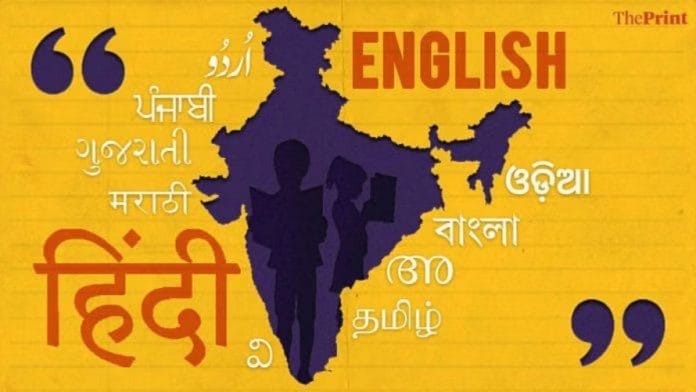Thank you dear subscribers, we are overwhelmed with your response.
Your Turn is a unique section from ThePrint featuring points of view from its subscribers. If you are a subscriber, have a point of view, please send it to us. If not, do subscribe here: https://theprint.in/subscribe/
Instances of linguistic intolerance have been reported in several states. In Maharashtra, political outfits have called for job reservations exclusively for Marathi-speaking locals. In cities like Mumbai and Pune, shopkeepers have faced intimidation over not displaying signboards in Marathi. Migrants from North India have even faced physical attacks and social boycotts, being accused of disrespecting the local language and culture.
Such developments are not unique to Maharashtra. In Tamil Nadu, there have been widespread protests against the alleged imposition of Hindi. In Karnataka, there are ongoing debates over the prominence of Hindi on public signage. In Assam, tribal and minority languages often struggle for space and recognition amid dominant regional languages.
Language: Identity or Ideology?
Language is deeply tied to personal and cultural identity. It is a medium through which heritage, emotion, and history are transmitted. But when language becomes a tool of exclusion, it moves from being a symbol of pride to an instrument of prejudice. This linguistic chauvinism threatens the inclusive spirit of the Indian Constitution, which guarantees the freedom to speak any language.
Building Unity Through Respect
To strengthen national harmony without compromising regional pride, a balanced approach is essential:
– Promote multilingual education, where students learn their mother tongue, a regional language, and English.
– Ensure equal respect and status for all Indian languages in public and administrative domains.
– Encourage inter-state cultural exchanges to foster understanding and appreciation for different linguistic communities.
– Hold media accountable for promoting cooperation instead of conflict.
A truly united India is one where linguistic diversity is seen as a celebration, not a complication. Citizens from different linguistic backgrounds must feel at home in any part of the country. Schools, colleges, workplaces, and digital platforms can become spaces where languages coexist, complement, and enrich each other. When we build bridges of dialogue and mutual respect, our unity becomes unshakable.
A Call for Collective Responsibility
Being proud of one’s language should never translate into contempt for another. Every Indian language contributes to the nation’s collective identity. Whether it is a Tamilian working in Pune, a Bihari studying in Mumbai, or a Maharashtrian visiting Delhi, they should feel equally respected and included.
Let us embrace the languages we speak, not as lines that divide us, but as bridges that connect. Let language be India’s melody—not its battlefield. In our many voices, let the world hear one strong and harmonious nation.
These pieces are being published as they have been received – they have not been edited/fact-checked by ThePrint.


